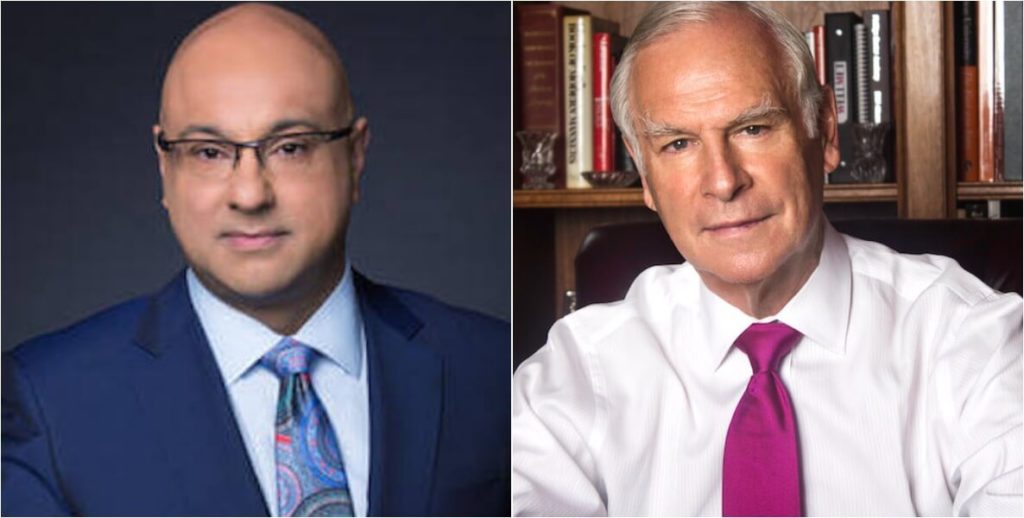Peter Georgescu likes to say that the hero of his story is America itself. He first burst into the national consciousness at all of 15 years old, when he and his brother were rescued from behind Iron Curtain lines during the Eisenhower administration and made headlines in the states.
Peter was seven years old when his parents left them to visit America. The Soviet Union overtook Romania while they were away, and they were forbidden from returning. Peter and his brother were placed in a hard-labor camp for five years before being reunited with their parents.
What followed was a string of opportunities provided to a just-off-the-boat refugee. That Georgescu ultimately became a high-powered CEO makes his a true “Only in America” story. But now he fears that what he was given is no longer regularly offered to the locked-out and overlooked.
When he appears at our Ideas We Should Steal Festival presented by Comcast NBCUniversal on December 14, in conversation with MSNBC anchor and Citizen board member Ali Velshi, Georgescu will offer a clarion call for a type of capitalism that reverses our scourge of income and wealth inequality.
“For the past four decades, capitalism has been slowly committing suicide,” Georgescu writes in Capitalists Arise! End Economic Inequality, Grow the Middle Class, Heal the Nation, a chronicle of his awakening. In its pages, we see Georgescu and his friend, billionaire Home Depot co-founder Ken Langone, urging fellow one percenters to widen the aperture of their collective lens’. “In retirement, I find myself, like Ken, trying to put my economic privilege to good use,” he writes.
Georgescu has done so by becoming a prominent voice for reversing the unequal effects of short-term shareholder primacy. The 20th Century America that provided him with opportunity and produced the fastest growing economy in history was actually an example of stakeholder capitalism—prioritizing customers, employees, and the country, as well as shareholders.
That Georgescu ultimately became a high-powered CEO makes his a true “Only in America” story. But now he fears that what he was given is no longer regularly offered to the locked-out and overlooked.
“Capitalism is a brilliant factory for prosperity. Brilliant,” Georgescu told The New York Times in 2019. “And yet the version of capitalism we have created here works for only a minority of people.”
“If capitalism can lift millions out of poverty around the world, as it is doing in China, India, and a host of other developing nations, it can revitalize itself here,” Georgescu writes. “It built the most affluent and creative middle class in history in America, a population that became the healthiest consumer market in the world. But how can we turn back the clock—or at least reset it?”
That’s the question that animates Georgescu now, in so-called retirement, when many of his former peers have retreated to private islands. But he’s not interested in theorizing.
In conversation with Velshi, he’ll outline concrete ways to hold management accountable for long-term plans and milestones, and provide ways to measure the strength and value of brands. (While at Y&R, he created something called the Brand Asset Valuator that does just that.) A system that incentivizes CEOs to invest in brand building, to pass value onto customers and employees as well as shareholders, and to invest in R&D is one, Georgescu argues, that will once again provide opportunity to those who—like a certain Romanian refugee—hunger to contribute to the American experiment.
MORE ON THE UPCOMING FESTIVAL
Ideas We Should Steal Festival 2021: “We Have to Fix Listening”
The Citizen Recommends: Fourth Annual Ideas We Should Steal Festival

